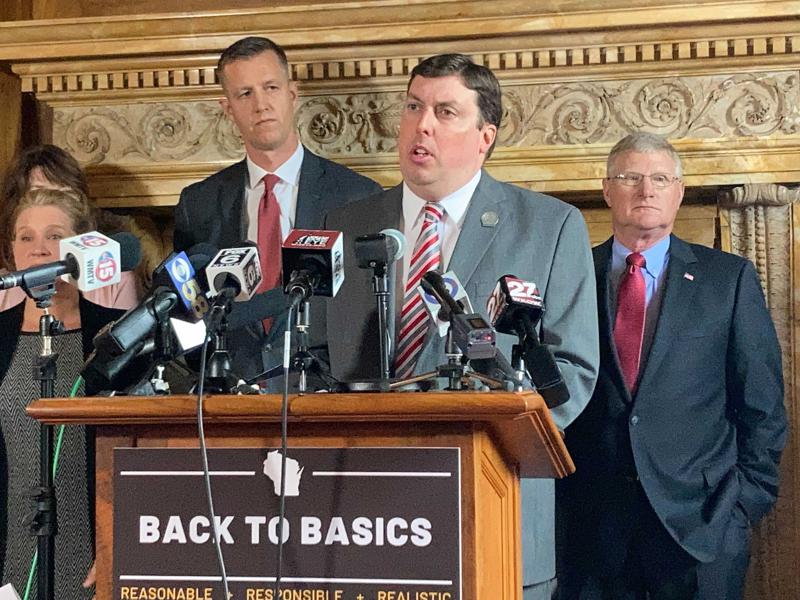Politics
Wisconsin GOP blocks $15 million to improve unemployment

MADISON, Wis. (AP) — Republicans who control the Legislature’s budget-writing committee scrapped Gov. Tony Evers’ plan Wednesday to hand the Department of Workforce Development $15 million to improve how it administers unemployment benefits.

The agency has been plagued by lengthy delays in getting checks to people who have lost their jobs since the COVID-19 pandemic began last year. According to the nonpartisan Legislative Fiscal Bureau, the department was taking two weeks to adjudicate applicants’ eligibility details as of mid-May, up from nine days in the first week of March. Appeals were taking an average of 78 days to process as of mid-May, up from 74 days in the first week of March.
Evers’ 2021-23 budget would have given the department $15 million to bolster administrative efforts and would have made the appropriation permanent going forward.
Republicans on the budget committee erased the proposal Wednesday. Committee co-chairman Rep. Mark Born told reporters before the vote that if Evers wants to improve unemployment benefit administration he should use federal aid. Wisconsin is in line to receive about $2.5 billion in pandemic relief funds under the federal American Rescue Plan Act of 2021.
Evers’ budget would have given the DWD nearly $80 million to modernize its computer system, but the provision was among hundreds of the governor’s proposals that Republicans erased from the budget last month.
Republicans instead decided to prioritize training workers to help employers who insist they can’t find enough employees as the state emerges from the pandemic. They voted Wednesday to boost funding for a program for vocational training for the disabled, and youth and adult apprentice programs.
They also inserted provisions in the budget that calls for the DWD to study whether it could adjust weekly unemployment benefits based on the state’s unemployment rate and create a rule implementing drug testing for benefit applicants.
“We have a workforce crisis on our hands,” said Republican Rep. Shannon Zimmerman. “We’re making a difference. We’re taking a step in the right direction to address the workforce (shortage).”
Assembly Speaker Robin Vos suggested earlier Wednesday that the state should do more to stop job applicants from skipping interviews. Republicans also have been pushing to end a $300 unemployment supplement they say encourages people to stay home.
Rep. Evan Goyke, a Milwaukee Democrat, said the Republican moves don’t go far enough.
“If there’s a crisis and we need to take action, why aren’t you taking action?” he said. “Another missed opportunity.”
In other actions Wednesday, Republicans on the committee:
— Killed a Democratic motion to legalize marijuana for medical purposes. Evers included the provision in his budget but Republicans on the committee erased it as they eliminated hundreds of the governor’s proposals from the spending plan last month;
— Wiped out the governor’s plan to create $20 million in grants for food pantries and food banks;
— Approved spending $319,200 on body cameras for DNR wardens and data storage. The state Department of Administration estimates an individual camera costs about $1,000; the committee’s action would provide enough money to buy 145 cameras. Evers’ budget called for spending $406,000 to buy 290 cameras for wardens and cover data storage; and
— Raised the cost of a duck hunting stamp from $7 to $12 as Evers had proposed. The move comes as a national decline in duck hunting has led to reduced revenue for waterfowl conservation projects.
Rep. Mark Born, the committee’s other co-chairman, told reporters that he expects the committee will finish its budget revisions in the next few weeks and that the Legislature will take floor votes by the end of June.
State law requires the new budget to be in place by the start of the next fiscal year on July 1, but that’s largely a symbolic target. Funding for state agencies and programs will continue at current levels until Evers signs a new budget.

